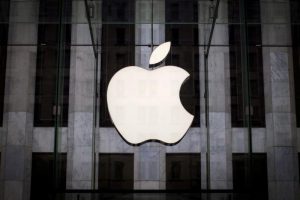 A countersuit has been filed by Apple accusing Qualcomm of patent-infringement. Per the countersuit Apple alleges that the Snapdragon chips that Qualcomm makes, and which are mostly used in mobile devices running on the Android operating system, infringe on patents belonging to Apple.
A countersuit has been filed by Apple accusing Qualcomm of patent-infringement. Per the countersuit Apple alleges that the Snapdragon chips that Qualcomm makes, and which are mostly used in mobile devices running on the Android operating system, infringe on patents belonging to Apple.
Four months ago Apple was accused by Qualcomm of infringing on a couple of patents which assisted in giving mobile devices longer battery life. The Cupertino, California-based tech giant however denied the claims saying that the patents in question were invalid. In the countersuit however, Apple has revised the answer by adding accusations in which the iPhone maker alleges that eight of its patents related to battery life have been violated by Qualcomm.
Battery life
According to Apple the specific processors that have violated the patents are Snapdragon 800 and the Snapdragon 820 which are present on Google’s Pixel phones as well as some of Samsung’s mobile devices. Apple has however not named Google or Samsung in the countersuit.
MacOS High Sierra security flaw
The countersuit against Qualcomm filed by Apple comes in the wake of the iPhone maker fixing a serious security issue which allowed anyone to access Mac computers running on MacOS High Sierra without a password being required. Consequently the world’s biggest company by market value added that it would be undertaking an audit of its development processes.
“We greatly regret this error and we apologize to all Mac users, both for releasing with this vulnerability and for the concern it has caused. Our customers deserve better. We are auditing our development processes to help prevent this from happening again,” a statement from Apple said.
The glitch allows practically anyone to physically log in to a Mac desktop or laptop with administrator rights by just typing ‘root’ as the username and hitting the ‘enter’ key at least two times. This posed the danger of malicious software being installed or personal files being wiped, cleaned or accessed without the knowledge of the owner. A Turkish developer named Lemi Orhan discovered the security flaw and Apple will consequently roll out updates automatically.
